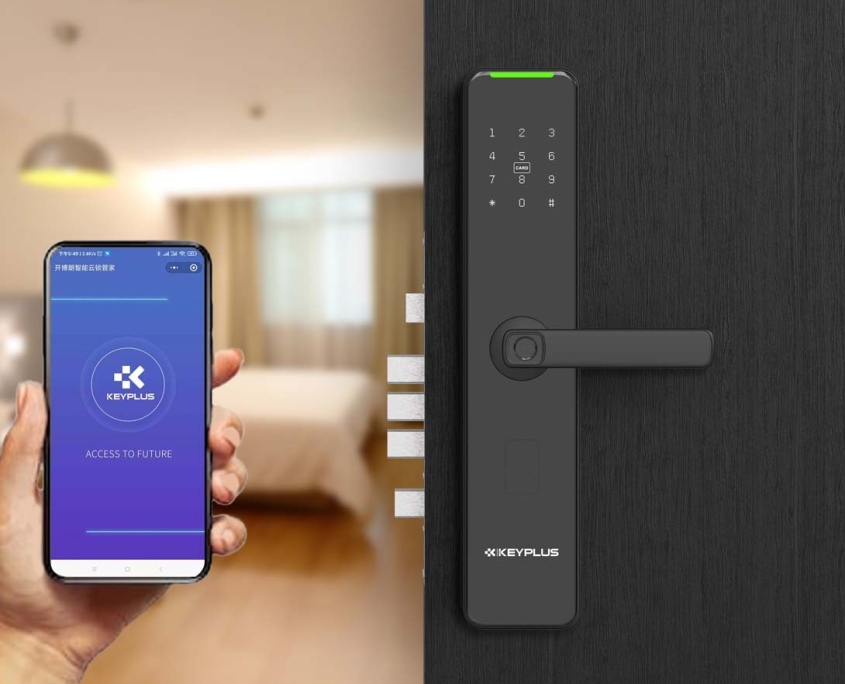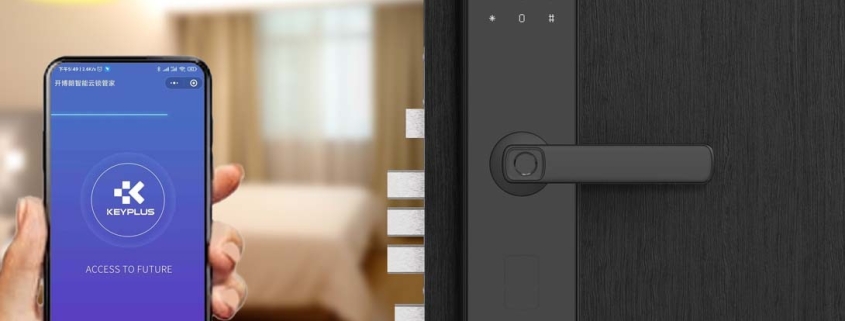Can I Lock My Front Door With My Phone?
Imagine this: You’re lying in bed and suddenly wonder, “Did I lock the front door?” Instead of getting up to check, you grab your phone, tap an app, and—click—your door locks instantly.
This isn’t science fiction. Smart locks let you control your front door from anywhere using your smartphone. But how does it work? Is it secure? And should you upgrade?
In this guide, we’ll cover:
How phone-controlled locks work
Types of smart locks (Wi-Fi, Bluetooth, Z-Wave)
Security risks & how to stay safe
Best smart locks for remote access
When a phone-controlled lock is (and isn’t) worth it
By the end, you’ll know whether locking your door with your phone is a game-changer or a gimmick.
1. How Does Locking Your Door With a Phone Work?
Smart locks connect to your phone via:
Wi-Fi Locks (Best for Remote Access)
-
Works from anywhere (as long as you have internet)
Bluetooth Locks (Close-Range Only)
-
Only works when you’re near the door (~30 ft range)
Z-Wave/Zigbee Locks (For Smart Home Hubs)
-
Needs a hub
2. Benefits of Phone-Controlled Door Locks
Never Worry About Forgetting to Lock Up
-
Auto-lock feature secures your door after you leave
-
Check status remotely (no more midnight door checks)
Grant Temporary Access
-
Let in dog walkers, cleaners, or guests without giving out keys
-
Set schedules (e.g., “Unlock for the plumber from 2-3 PM only”)
Works With Smart Home Systems
-
Voice control: “Alexa, lock the front door.”
-
Automations: Unlock when your phone arrives home
No More Lost Keys
-
Digital keys mean no more locksmith calls
3. Potential Downsides & Security Risks
Hacking Concerns
-
Cheap smart locks can be vulnerable to cyberattacks
-
Solution: Choose brands with AES-128 encryption
Power & Internet Dependence
-
Wi-Fi locks drain batteries faster (3-6 months vs. 12+ for Bluetooth)
-
If your internet goes down, remote access may stop
Phone Dependency
-
If your phone dies, you’ll need a backup method (PIN, key, or RFID)

4. Can You Really Trust a Phone-Controlled Lock?
Security Pros:
No physical keys to lose or copy
Real-time alerts if someone enters
Auto-lock prevents forgetfulness
Security Cons:
Wi-Fi locks can be hacked (if poorly encrypted)
Power/internet outages disable remote features
Phone theft = potential home access (use biometric app locks)
Tip: For maximum security, pair your smart lock with a video doorbell.
5. Installation: Can You DIY?
Most smart locks are easy to install if:
-
You’re replacing an existing deadbolt
-
Your door is standard thickness (1-3/8″ to 1-3/4″)
Basic Steps:
-
Remove old deadbolt
-
Install new smart lock
-
Connect to Wi-Fi/Bluetooth
-
Set up app controls
6. Is a Phone-Controlled Lock Right for You?
YES, If You Want:
-
Keyless convenience
-
Remote access for guests
-
Smart home integration
NO, If You:
-
Prefer low-tech solutions
-
Live in areas with spotty internet
-
Want the cheapest option
Final Verdict
Locking your door with your phone is secure, convenient, and futuristic—but only if you choose a reputable brand and understand the risks.
For most Americans, the peace of mind of remote access is worth the investment.
Have you tried a phone-controlled lock?









